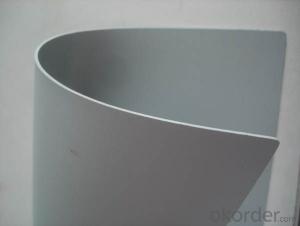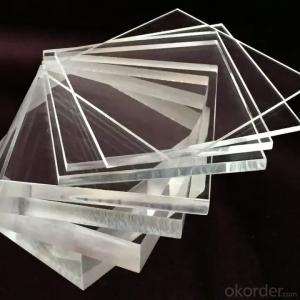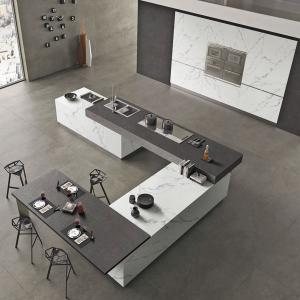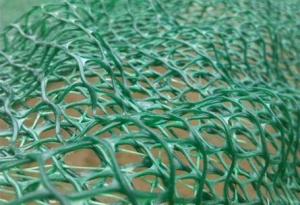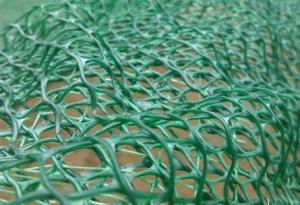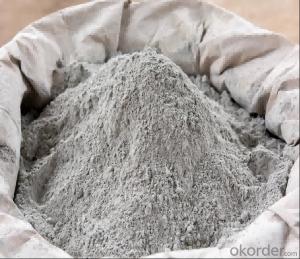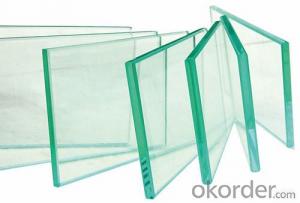PVC Waterproofing Membrane for Construction Field
- Loading Port:
- China main port
- Payment Terms:
- TT OR LC
- Min Order Qty:
- 5000 m²
- Supply Capability:
- 100000 m²/month
OKorder Service Pledge
OKorder Financial Service
You Might Also Like
Introduction for PVC Waterproofing Membrane
Excellent anti-aging property.
Puncture- resistant.
Welding construction,
High tensile strength, good elongation, good dimensional stability.
Good plasticity.
It has self-extinguishing from fire property.
Materials surface is smooth, fast color, stain resistance.
More wide, Wastage become less when being used.
1.Technical data of PVC Membrane
Item | Specification |
Length | 20m |
Width | 1.05m, 2.05m,2.1m |
Thickness | 0.8mm,1.0mm;1.2mm;1.5mm;2.0mm |
2.Characteristic of PVC Membrane
1.Strong tensile strength, high elongation, can fit big deformation of substrates.
2.Excellent anti-extreme weather property, can adapt to various environment temperature difference.
3.Suitable for exposed projects with long lifetime and good anti-aging property.
4.Can be welded firmly and reliably.
5.Outstanding root penetration resistance, best choice for planted roofs.
6.Simple and fast construction without pollution.
7.Great plasticity and fast treatment with corners and details.
3.Applicable scope of PVC Membrane
PVC sheet forms an effective barrier to liquid water or water vapor in the roof construction for industrial and civil engineering, underground engineering such as subway& tunnel, water conservancy such as water pools & ditch, shelter, grain depot, land filling, dyke, sewage treatment and basement.
4. FAQ of PVC Waterproofing Membrane
a.Can we get some samples before place order?
Answer: We can send the free samples to you by freight collect.
b.How many years can your PVC membrane guarantee?
Answer: We will guarantee the quality for 5 years at least.
c.Which countries you ever export the product?
Answer: We export the PVC membrane to South Africa, Middle east and even European countries.
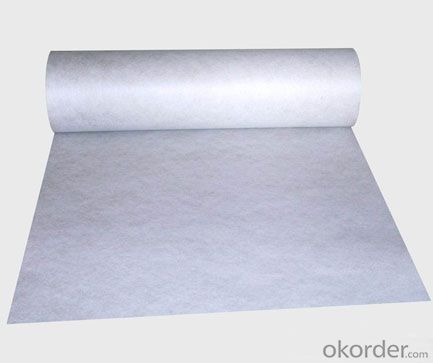
- Q:Are waterproofing membranes resistant to corrosion?
- Indeed, waterproofing membranes exhibit remarkable corrosion resistance. Engineered with the sole purpose of forming a formidable shield against water, moisture, and other destructive agents, these membranes are meticulously crafted using non-corrosive materials such as synthetic polymers like PVC or TPO, as well as rubberized asphalt. Thanks to their exceptional resistance to water, moisture, chemicals, and other corrosive substances, structures can be effectively safeguarded against corrosion and enjoy an extended lifespan when these waterproofing membranes are skillfully installed and diligently maintained.
- Q:How does a waterproofing membrane withstand temperature changes?
- A waterproofing membrane is designed to withstand temperature changes by being made from materials that can expand and contract without losing their properties. These materials are typically flexible and have a high tolerance for temperature fluctuations, allowing them to maintain their waterproofing capabilities even in extreme weather conditions. Additionally, the membrane's installation process often involves proper sealing and adhesion techniques, ensuring that it remains intact and unaffected by temperature changes.
- Q:Are there any specific requirements for installing a waterproofing membrane?
- Yes, there are specific requirements for installing a waterproofing membrane. These requirements may vary depending on the type of membrane being used and the specific application. However, some general requirements include: 1. Surface Preparation: The surface where the membrane will be installed must be clean, dry, and free from any dust, debris, or contaminants. Any cracks or defects in the surface should be repaired prior to installation. 2. Adhesive or Bonding Agent: Depending on the type of membrane, an adhesive or bonding agent may be required to ensure proper adhesion to the substrate. This adhesive should be compatible with both the membrane and the substrate. 3. Primer: In some cases, a primer may be necessary to enhance the adhesion between the substrate and the membrane. The type of primer required will depend on the specific membrane and substrate being used. 4. Seam and Joint Preparation: Properly preparing seams and joints is crucial to ensure a watertight installation. This may involve using a specific sealant or tape to reinforce the seams and prevent water penetration. 5. Installation Techniques: The membrane should be installed according to the manufacturer's instructions and industry best practices. This may include using a specific method such as torching, hot air welding, or cold adhesive application. 6. Overlaps and Transitions: Properly overlapping the membrane sheets and ensuring smooth transitions between different areas is essential for a successful installation. This will help prevent water from seeping through gaps or weak points in the membrane. 7. Quality Control: Regular inspections and quality control measures should be implemented throughout the installation process to ensure that the membrane is being installed correctly and meets the required standards. It is important to consult the manufacturer's guidelines and specifications for the specific waterproofing membrane being used, as different membranes may have unique installation requirements. Additionally, local building codes and regulations should also be considered to ensure compliance and to meet any specific requirements in your area.
- Q:Can a waterproofing membrane be used as a vapor barrier?
- Yes, a waterproofing membrane can be used as a vapor barrier. Waterproofing membranes are designed to prevent the passage of water through a surface, such as a roof or foundation. In the process of preventing water penetration, these membranes also act as a vapor barrier, stopping the movement of water vapor. This helps to reduce the risk of condensation and moisture-related issues within a structure. However, it is important to note that not all waterproofing membranes are created equal and may have different levels of vapor resistance. Therefore, it is essential to select a waterproofing membrane that is specifically designed to also act as a vapor barrier if that is a requirement for the intended application.
- Q:Is a waterproofing membrane resistant to root penetration?
- Yes, a waterproofing membrane is typically resistant to root penetration.
- Q:Can a waterproofing membrane be used on precast galvanized surfaces?
- Yes, a waterproofing membrane can be used on precast galvanized surfaces. The membrane will provide an additional layer of protection against water penetration and help to prevent corrosion on the galvanized surface.
- Q:Are waterproofing membranes resistant to frost damage?
- Yes, waterproofing membranes are designed to be resistant to frost damage. They are typically made from durable materials that can withstand freezing temperatures without cracking or deteriorating.
- Q:Are waterproofing membranes resistant to chemicals?
- Yes, waterproofing membranes are generally resistant to chemicals. These membranes are designed to provide a protective barrier against water infiltration and are typically made from materials such as PVC, TPO, or EPDM which have excellent chemical resistance properties. They are specifically engineered to withstand exposure to various chemicals, including acids, alkalis, solvents, and oils, without deteriorating or being damaged. This chemical resistance ensures that waterproofing membranes can maintain their integrity and effectiveness in environments where chemical exposure is common, such as industrial settings, laboratories, or chemical storage areas. However, it is important to note that the specific chemical resistance capabilities can vary depending on the type and quality of the waterproofing membrane, so it is crucial to choose the appropriate membrane that suits the specific chemical exposure requirements of the project.
- Q:Can a waterproofing membrane be used on tunnels with communication systems?
- Yes, a waterproofing membrane can be used on tunnels with communication systems. The membrane can help protect the communication systems from water damage and ensure their proper functioning.
- Q:Are waterproofing membranes fire-resistant?
- Waterproofing membranes can vary in their fire-resistant properties. Some waterproofing membranes are specifically designed to be fire-resistant, while others may not have any fire resistance at all. It is important to check the specifications and certifications of the specific waterproofing membrane in question to determine its fire-resistant capabilities. Additionally, building codes and regulations may also dictate the required fire resistance of waterproofing membranes in certain applications.
1. Manufacturer Overview |
|
|---|---|
| Location | |
| Year Established | |
| Annual Output Value | |
| Main Markets | |
| Company Certifications | |
2. Manufacturer Certificates |
|
|---|---|
| a) Certification Name | |
| Range | |
| Reference | |
| Validity Period | |
3. Manufacturer Capability |
|
|---|---|
| a)Trade Capacity | |
| Nearest Port | |
| Export Percentage | |
| No.of Employees in Trade Department | |
| Language Spoken: | |
| b)Factory Information | |
| Factory Size: | |
| No. of Production Lines | |
| Contract Manufacturing | |
| Product Price Range | |
Send your message to us
PVC Waterproofing Membrane for Construction Field
- Loading Port:
- China main port
- Payment Terms:
- TT OR LC
- Min Order Qty:
- 5000 m²
- Supply Capability:
- 100000 m²/month
OKorder Service Pledge
OKorder Financial Service
Similar products
New products
Hot products
Related keywords
